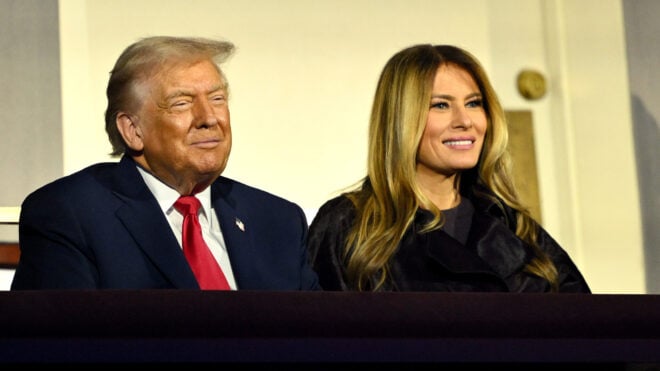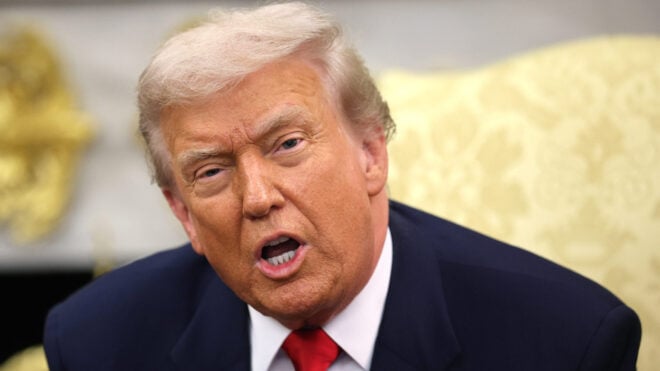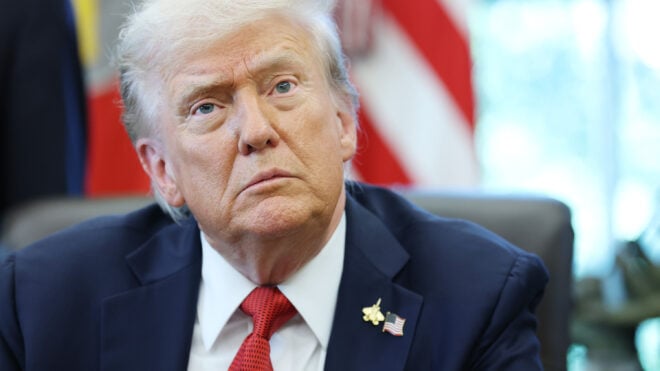Harry and Meghan are almost officially free from their roles as senior royals. This last week was the final time the two carried out public duties on the Queen's behalf.
Many people have reflected on what this means for the couple, as well as the royal family. We've looked at how the relationship between Harry and Queen Elizabeth has been affected, as well as the one between Harry and Prince William. There's been a continuous debate regarding Meghan's role in all of this.
What many people haven't considered, however, is how all of this didn't have to happen. This bittersweet moment of bidding the country farewell could have been avoided. The potentially irreversible damage to royal relationships could have been avoided.
What would that have taken? On the royal family's behalf, it may have taken a hard look at why the relationships with non-heir royals are tumultuous, at best. It may have also taken a greater willingness to pivot toward modernity. People may question whether or not Harry and Meghan truly tried their best, but doing everything you can for an institution that isn't doing much for you feels like a fruitless way to spend the rest of your life.
In a sense, Harry and Meghan are still trying. While they won't be able to carry out engagements on behalf of the Queen or indulge in many of the privileges of royal life, they have still vowed to support the Queen and the Commonwealth ideologically and through acts of service.
"There is a lot of goodwill — everybody’s really reassured, as the couple has gone out of their way to let everyone know that they aren’t abandoning anyone," a royal insider noted.
It's nice of Harry and Meghan to continue to extend themselves. It's also an interesting choice, considering that had any of their goodwill been reciprocated earlier on, none of this would be happening.
Naysayers will jump to slam Meghan for this issue, but it was present way before Meghan was a factor. Need an example? Look no further than Princess Margaret, whose life trajectory was thrown again and again by her role as spare to the heir.
In Margaret's New York Times obituary, Harold Brooks-Baker, publishing director of Burke's Peerage, noted that the institution's heavy hand in Margaret's life was a large part of why she was viewed as "troubled."
She was not allowed to marry the man she had fallen in love with. "Sympathetic observers later said that if the couple had been permitted to marry, the princess would have settled down to a more conventional life, like her sister," it reads.
"But in his 1978 autobiography, Time and Chance, Group Captain Townsend wrote, 'I simply hadn't the weight, I knew it, to counterbalance all she would have lost.'"
Queen Elizabeth was aware of how badly this impacted Margaret's life. "After Princess Margaret was denied marriage, it backfired and more or less ruined Margaret's life," Harold wrote.
"The queen decided that from then on, anyone someone in her family wanted to marry would be more or less acceptable. The royal family and the public now feel that they've gone too far in the other direction."
This didn't stop William from trying to object to Harry's relationship with Meghan. Recall that this allegedly began with William telling Harry that he was moving too fast when Harry considered proposing in mid-2017.
He and Meghan had been together for about two years when he eventually did in November 2017. This may seem short in comparison to the seven years that William and Kate were together, but considering their age and the alleged internal pressure on Harry to marry, it wasn't all that unusual.
Harry wasn't kept from marrying Meghan, but he was offered no support with the relentless press attacks against her. The fact that Harry and Meghan were on their own in these situations was likely a major contributing factor for their decision to break away. It's particularly confusing considering Harry's concerns being rooted in what happened to his mother, Princess Diana.
We've often heard about how much the royal family learned from Princess Diana's death. Queen Elizabeth said so herself during her live televised address to the nation following Diana's death. Yet Meghan found herself dealing with the same oppressive tabloid attacks that plagued Diana in her years in the family and more savagely so in the last year of her life.
It's no secret how Harry feels about the media. Even before he put it in his own words in the documentary Harry & Meghan: An African Journey, a 2017 article about the 20th anniversary of Diana's death captures it.
"Those seeking signs of Diana's ongoing influence and relevance seize upon how comfortable her sons appear to be in their own skins, and in front of the public," the BBC's Peter Hunt wrote.
"It's not without cost. The two princes who live in a palace and who ate burgers outside with their mum have struggled to accept they can't lead a 'normal life.'"
"As well as a desire to experience life on the outside, Diana's sons share her ambivalence towards the media," it noted. At the time of the article, Harry had already issued his first warning toward the media regarding Meghan. Without any support from other members of the royal family, the message became the beginning of the narrative in the press that Harry did what Meghan said.
If anyone knew how much Harry valued the normalcy his mother offered, it was Queen Elizabeth, Prince Charles, and Prince William. Yet all three are supposedly surprised and hurt by his desire to raise a family in that kind of environment. That's even though he plainly said it himself in a 2017 interview with Newsweek.
"My mother took a huge part in showing me an ordinary life, including taking me and my brother to see homeless people. Thank goodness I'm not completely cut off from reality. People would be amazed by the ordinary life William and I live … But I am determined to have a relatively normal life, and if I am lucky enough to have children, they can have one too."
In the same interview, he talks about how he, William, and Kate all looked forward to overhauling the monarchy. While it certainly seemed that way in 2017, it seems that the closer William and Kate get to the crown, the more they've abandoned that desire in the name of power.
"The monarchy is a force for good, and we want to carry on the positive atmosphere that the queen has achieved for over 60 years, but we won't be trying to fill her boots," Harry noted.
"We are involved in modernizing the British monarchy. We are not doing this for ourselves but for the greater good of the people."
It seems like Harry is very open in referencing the shortcomings of the royal family in the past. Up to a point, he believed his brother had been with him in that battle. That no longer seems to be the case. Harry's departure may have been bittersweet for the royal family, but it seems like he's been upfront about his intentions and desires for a long time. It's possible Harry feels he wasn't taken seriously, and that could have been another enormous factor that's tough to ignore.




